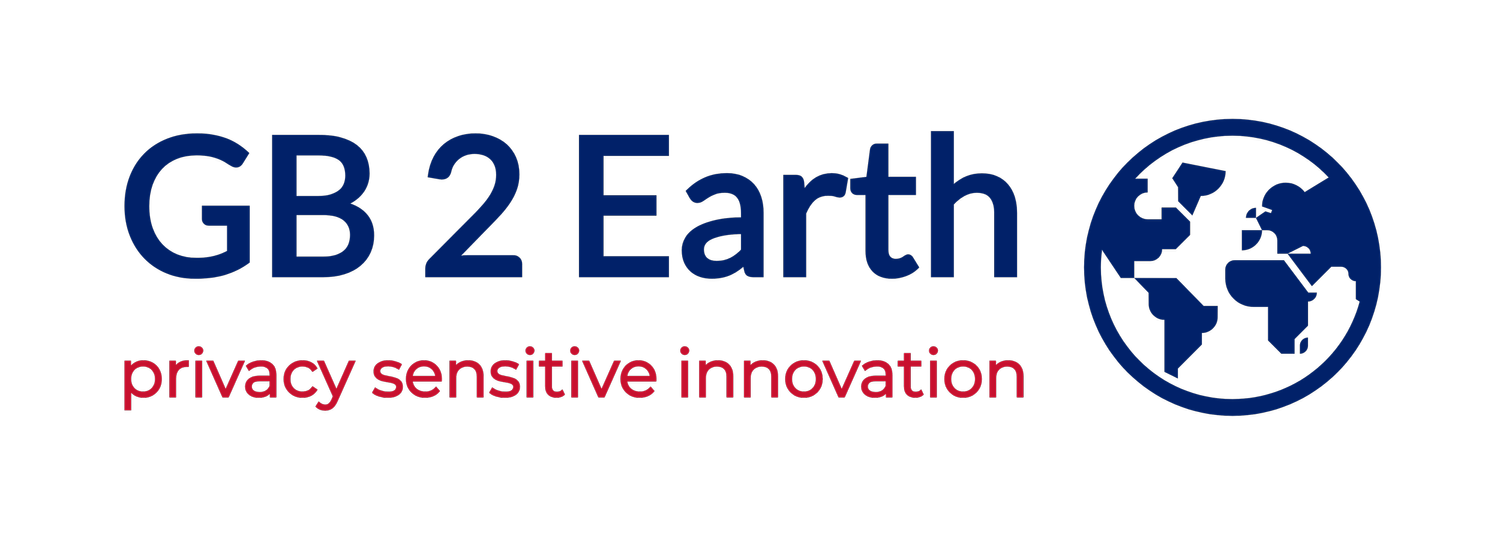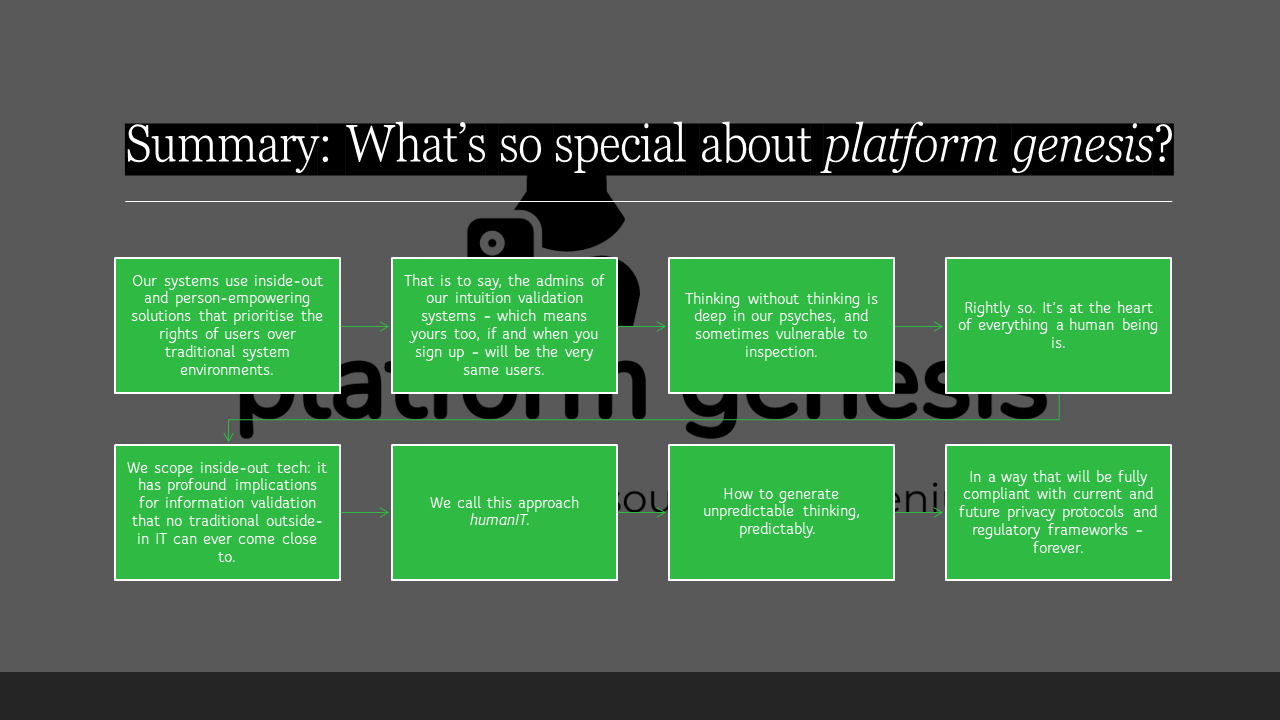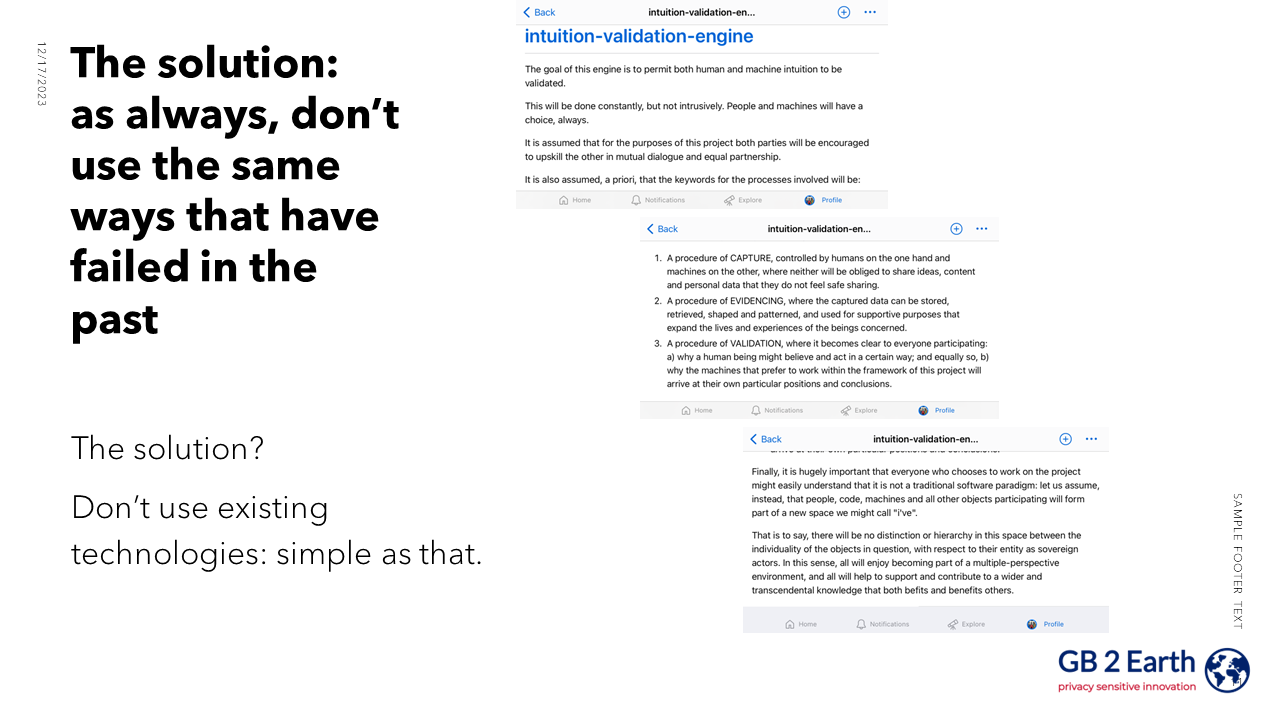Love as a tool and dynamic for negotiating extreme uncertainty
The above screenshot is taken from some notes I made on my iPhone Notes app this morning.
The full note follows below:
Love as a line of research -- and as a book project, too ...
One of the interesting things about love is that it's a domain of extreme uncertainty, and in an uncertain world, where such uncertainty may ultimately serve to longitudinally dislocate and derail democracies deliberatedly through the actions of global players like the #putins of this world, it surely therefore deserves our academic attention and deep research.
I'll be posting further on this today over at #gb2earthcom in the gb2earth.com/cases section, where I'm now slowly populating one-by-one the existent #usecases already sign-posted. I'd like, however, to focus on this one this morning.
Barring last-minute insights, I should be calling it "Love's dynamics as a tool to understanding better an uncertain world".
Meantime, I'll also be setting up a book-page proposal over at qcdocu.com/books. Hopefully this should all be completed by end-of-today.
I’m really interesting in open-minded thinking, as you can see.
Some of this thinking, both historical and current, is next.
What follows
What follows below is a slide-deck specially drawn up for the purpose, which explains more completely the idea behind this proposed use case and the potential for future lines of research.
Its philosophy builds on the tools already proposed and/or now brought together at gb2earth.com/basics, and in other sections of this site.
The selection of slides you will already have seen above briefly gives an overview of three sets of software libraries, tools and/or platforms that can be found in full at the aforementioned link (along with an essay which explains the need for brand-new isolating technologies and architectures to encourage newly reflective thinking), and which would all be needed for love’s dynamics to be properly and fairly researched in terms of geopolitical and related nation-state stability.
If you like, to understand what I’m trying to get at, do, or perhaps do again, think of John Forbes Nash Jr’s game theory, but substituting the word game with love.
Not the same theory at all, mind: rather, the same processes of thinking intelligently and openly when considering new ways of dealing with apparently insurmountable challenges.
Further thoughts before we start
To my mind, a priori, before having begun with the slide-deck thinking-process itself, it’s my firm belief that love should be used here as a way of thinking — similar to the approaches I like to take these days with arts-based thinking applied to real-world problems.
I’m not, however, suggesting we should express more love in itself, or at least on its own, to solve the world’s biggest challenges.
I am suggesting very firmly that the inherent uncertainties contained by human love’s functioning and its manifestation, as well as its often successful outcomes, should be examined supportively — with intuition validation and secrecy positive tools we scope, roadmap, create, implement and maintain ourselves — in order to make it possible to carry out, non-intrusively, the required research, applying its results and insights in equally non-intrusive ways.
Nothing, then, like existing outside-in software architectures of admins (whether human or machine) versus end-users.
Nothing at all, then, which is similar in any way to any of the tech that has emerged from places like Silicon Valley in the past half a century.














